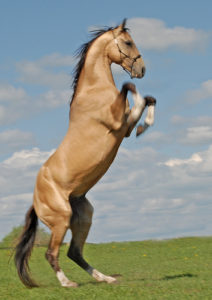
Learning how to treat horses humanely while still having them complete competitively is a challenge in the horse racing world. Making sure both the horses and the jockeys are in top physical and mental condition is critical to their success. Most trainers recognize this and spare no expense when it comes to having ACLS certified medical staff on hand. Generally these doctors and nurses trained in ACLS online recert can keep a close eye on the physical demands of the horses and jockeys and recognize when intervention should take place.
The horse is one of the sub species of Equus ferus. It was around 4000 B.C. that humans started to domesticate horses. They were trained for combats and even competitions. Domesticating horses also means taking care of them. Just like all the other animals there is, horses also needs to be looked after. There is so much about horses that needs to be learned. It could range from the everyday maintenance care, to its grooming, dental, and internal health. Taking care of your horse also means that you have to choose the right food for them to eat including vitamin intakes. There are more to it in keeping them healthy.
Horses can somehow be complex. You have to regularly check for colic and digestive problems, including leg or foot issues, it’s also important that they have regular vaccine and deworming. These things will keep them totally fit. Like all of us in the animal kingdom, horses can also be affected by weather issues. So you have to make sure that they have proper houses and are fed well. Improper housing may lead to sprains and soreness of the back which may bring the horses pain. When illness strikes or when a horse is in pain it will affect how they move and even how they feel.

Healthy horses move freely and are happier than those that aren’t feeling better. How do you know if your horse is sick? Like humans, some injuries or illness can be recognized by the change in mood. The healthy horses tend to be normally jolly and very playful and do not make it hard for you to train. When in sickness the normal behavior might alter, the horse might become moody or won’t even cooperate. These are the factors that you might want to check. The mood might change first even before the illness or the injury appears physically. Many things in the horses’ environment could affect their health and might cause allergies.
Under normal and healthy environment, the horses are still exposed to dusts and molds. Even in the pastures, horses can also get allergies from the proteins that they eat. So it cannot really be avoided even if horses can fight some allergies by having a healthy immune system, it does not apply in general. The truth is, horses can also get allergies, while some can change their moods when not feeling well. A horse can have many different symptoms when experiencing allergies. Teary-eyed and coughing are the most common symptoms of allergy. Because there isn’t really a sure way to find out what is the real cause of an allergy or if your horse is suffering from an allergy or an illness.
If any of these symptoms happens, the best approach is to immediately have the horse check by a veterinarian. Experts can tell you the specific condition of the horse and can also recommend proper ways to cure the illness. It is also best that you have some knowledge about horses before you even think of having one for yourself.
